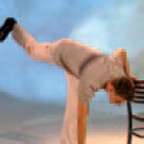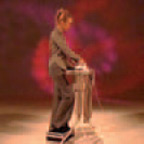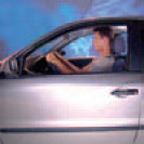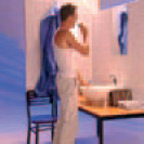-
Free walk-in consultation hours
-
Reimbursed by insurance
-
No deductible
-
No referral needed
- Ultrasound and shockwave
- Hyperbaric Oxygen Therapy
-
Open Saturday and evening
Chiropractic and Prevention
Can you imagine what your teeth would look like if they had never been checked by the dentist? Exactly, maintenance is essential. This also applies to your spine. How long has it been since you had it checked? By properly maintaining the spine, the risk of injuries decreases and you maintain optimal freedom of movement.
Daily activities
Do you ever have the idea that you are not performing activities correctly and this overloads your body? With the advice we give you, this becomes a thing of the past. You can apply this daily to prevent back and neck complaints.
Sleeping on your back or side
If you have complaints while lying on your back, we recommend placing a thick pillow under your knees. In this way the hollow in your back disappears and the pressure on the lower part of the spine is reduced. However, never sleep on your stomach, your spine will be overloaded that way.

To sleep
The best position for sleeping is on your back or side. In either case, place the pillow under your head and neck. Your neck should be level with the rest of the spine. The use of an orthopedic neck pillow is recommended.

To get up
Turn on your side first. At the same time swing the legs off the bed and push yourself up from the mattress with your hands. Sit on the edge of the bed. Then place your hands on the knees and come up with a straight back.
Daily activities

Lifting
((eg groceries, child, laundry basket) Always stand straight in front of the object, this way you prevent twisting the spine when lifting and putting down. Bend your knees, not your back. Keep the weight close to your body and use your abs and leg muscles to lift.

Stooping
(eg picking up an object) Find support with one hand and stretch the opposite leg back. This keeps the back straight while picking up. When bending over for a long time (eg gardening), never bend your back, but always bend the hips and knees.
Standing

Prolonged standing
(eg washing dishes, ironing, etc.) Always place the object to be used at the correct height. Alternately place one foot on a step so that the lower back experiences less pressure. During ironing, for example, by alternately placing one leg on a small stool (photo). In the kitchen, this can be done by placing one leg in an open kitchen cupboard. Stop the activity every now and then and walk around for a while.
Toothbrushing
Lower your body by bending your knees slightly. If possible, you can use an arm for support. By standing upright, you put less strain on your back and neck.
Sitting
 Sitting (e.g. working position)
Sitting (e.g. working position)
(e.g. working position) The chair must first be properly adjusted, adapted to the user. The chair is directly in front of the screen so that the neck does not have to be turned. Raise the monitor so that you do not have to bend your neck forward. The viewing distance must be at least 50 cm. Finally, the armrests are possible aids to relieve the shoulder muscles. If you make a lot of phone calls, it is recommended to use a headset. Never clamp the phone between shoulder and ear.

Sitting for a long time (e.g. in a car)
Place the backrest upright, at a right angle, so that the lumbar support can be felt in the lower back. The distance between the upper body and the handlebars is optimal if the arms are slightly bent.
Babies and children
Babies
Do not use a carrier. This provides insufficient support to the spine. Also, avoid using a baby walker. This causes the baby to walk too fast, which prevents normal development of the spine.
Growing Children
Use a backpack, worn over both shoulders, rather than a school bag. This way the weight is better distributed. Only take what is strictly necessary.
Chiropractic
Chiropractic is a profession that has been around for more than 100 years. The treatment focuses on disorders in the functioning of the musculoskeletal system and the relationship with the nervous system. A chiropractor checks your spine for blockages. Through a thorough examination and targeted treatment, the chiropractor locates and corrects these blockages. This restores the optimal nerve function and allows the body to heal itself.
The chiropractic treatment
Using his specialist knowledge and skills, the chiropractor examines the spine and nervous system to locate unnatural movements and blockages. In this way he finds out what the cause of the deviation is. As a result, various complaints such as; back and neck pain, headaches, migraines, sciatica and hernias are often treated with excellent results. The treatments can prevent further damage to the intervertebral discs and nerves. Chiropractic treatments aim to correct incorrect posture, increase spinal mobility and restore the function of irritated nerves. This is done by manipulating the joint with hands-on techniques. This restores the freedom of movement of the joint and reduces the pain. When the desired treatment result has been achieved, the chiropractor will advise you to return regularly for follow-up treatments. By properly maintaining the spine, the risk of recurrence decreases and the patient retains optimal freedom of movement.
The most frequently asked questions
Why is a chiropractor also called a “joint-cracker"?
During chiropractic treatment, the chiropractor puts pressure on the joint. With this correction, the patient sometimes hears a “cracking sound”. This crack is the result of an air bubble in the joint, which is released by the pressure placed on the joint and thus causes the sound. It has nothing to do with bones rubbing against each other or tissues breaking.
Why do I have to come back when I feel good?
You can also ask the question: "Why do I have to visit the dentist regularly for check-ups, even if I don't have a toothache?" By checking and optimizing the spine, you will feel a lot more mobile and fitter and you can prevent complaints.
Preventing complaints
- Avoid sitting cross-legged.
- Remove the wallet from your back pocket, the spine is then more balanced.
- Don't wear high heels.
- Adjust the headrest in your car correctly, always wear a seat belt and make sure your children are safe and secured by means of a seat belt.
- Adjust your rear view mirror slightly higher. To see the cars behind you, you automatically sit up.
- Watch your weight.
- Breastfeed your baby if possible.
- Have your own spine and your children's spine examined regularly.
Finally
If you still have back or neck complaints after applying the tips and advice, we recommend that you have your spine checked by a chiropractor. By having the spine checked regularly, you can easily prevent complaints.
Get to know chiropractic for free
Every Friday between 4 and 4.30 pm without an appointment.
Would you first like to know what chiropractic can do for you? Then come to the free consultation hour without obligation. All other days and times are by appointment. During the introductory meeting you will discuss your complaints with the chiropractor. The chiropractor will then advise which chiropractic treatments may offer a solution to your problem.

